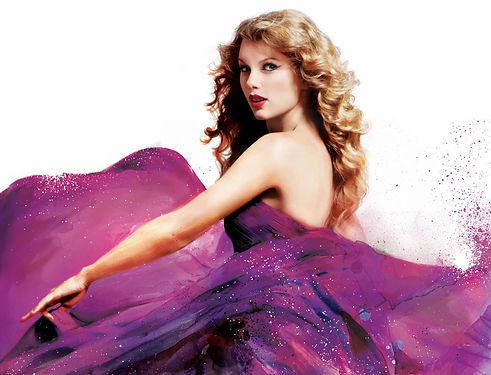
Forgiveness and Self-Redefinition in Taylor Swift’s 'Innocent'
In her song, “Innocent,” Taylor Swift explores big ideas like forgiveness, personal growth, and how we deal with being hurt by other people. The song responds to the incident at the 2009 MTV Video Music Awards (VMAs), where Kanye West interrupted her speech on stage. But instead of being angry or vengeful, Swift chooses to reflect. She shows that forgiveness isn’t about forgetting what happened and is instead about choosing to move forward and take back control of your story. As Taylor Swift and Philosophy explains, “Forgiveness, for Swift, is not about forgetting or excusing, but about redefining the relationship to pain and reclaiming one’s sense of self in the aftermath of wrongdoing…” (Leung, p. 87).

At one point in the song, she says, “You’re still an innocent.” This means she doesn’t believe one bad moment should define a person forever. This connects with Aristotle’s idea that people grow into their character over time. When she sings “32 and still growing up now,” she’s saying that people are always learning and changing, even as adults. But by calling Kanye a kind of “innocent,” she also makes him seem like a child, which raises the question: if someone is emotionally immature, are they still fully responsible for what they did?

One of the most powerful ideas in the song is how betrayal changes us. When someone breaks our trust, it’s not just a one-time thing. Trust being broken changes how we see people and relationships after the fact. Swift shows this when she sings about how “time turns flames to embers,” suggesting that the pain fades but still stays with you. This connects us to philosopher Jacques Derrida’s idea of hauntology, which explains how some events “haunt” us like ghosts. Even when we forgive, the memory of what happened can stick around. Throughout “Innocent,” Swift seems to understand that forgiveness doesn’t erase the past, but helps us live with it.
"It doesn’t really add anything good if I start victimizing myself and complaining about things... there was a lot that went down backstage that I will always be thankful for... I feel everything. I’ve never had this thick skin that can’t be … It’s not like I am bulletproof in any sense of the word."
- Taylor Swift; "Princess Crossover" by Chris Willman for New York Magazine
Conclusion
In the end, Innocent is about taking control of your story. It recognizes the hurt but chooses hope. Swift doesn’t pretend the betrayal didn’t happen, but she shows that people (and life) can move forward despite it.